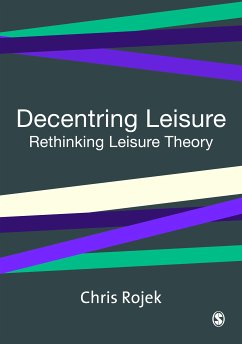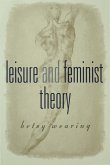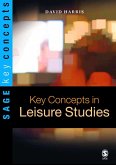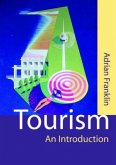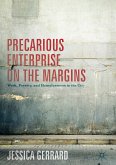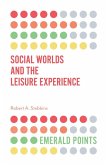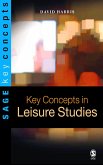This book explores the meaning of leisure in the context of key social formations of our time. Chris Rojek brings together the insights of feminsim, Marxism, Weber, Elias, Simmel, Nietzsche and Baudrillard to produce a survey - and rethinking - of leisure theory. At the same time he presents a radical critique of the traditional 'centring' of leisure, on 'escape', 'freedom' and 'choice'.
Revealing how leisure practices have responded to living in a risk society, he shows that 'free' time becomes something very different when simulation and nostalgia lie at the heart of everyday life.
Revealing how leisure practices have responded to living in a risk society, he shows that 'free' time becomes something very different when simulation and nostalgia lie at the heart of everyday life.
Dieser Download kann aus rechtlichen Gründen nur mit Rechnungsadresse in A, D ausgeliefert werden.
`Rojek provides a useful and well-referenced survey of modernist and postmodernist cultural theory. Always careful to locate his analysis in the work of leading thinkers, the reader is treated to a concise trip around the houses of recent and current cultural theory stopping regularly to (re)consider what light can be shed on the question of leisure in postmodern society.... key terms and ideas are defined and explained simply and straightforwardly, often being broken down into three or four `main points' for easy digestion. A strategy which will no doubt be welcomed by the erstwhile essay-writing undergraduate. The format is reflected in a tidy structure to the book' - Reviewing Sociology `A book to get you thinking. It has proved impossible to convey accurately the exciting, wide-ranging, seemingly effortless trawl across a wide variety of schools, disciplines and thinkers which Rojek employs to support his argument. He uses a direct personal style which shines through the closely argued material and keeps you turning the pages to the very end. Students brought up in the modernist traditions of sociologies of leisure may find this book challenging and ultimately even frustrating, but it is an essential text which I hope will appear on recommended reading lists everywhere leisure is studied' - Work, Employment & Society `A masterful defence of the title. It is written in a confident and engaging style which has the virtue of making what is often a bewildering conceptual minefield accessible to students... It will provide a valuable teaching aid. I would certainly use it to clarify and illustrate the sociological perspective on modernity and postmodernity. I particularly appreciated the examples and the occasional acerbic and ironic observations. The distinction he draws between Modernity 1 and Modernity 2 is a particularly useful key to getting purchase on the thorny (and for many baffling concepts of postmodernity and postmodernism) and his comprehensive survey of the issues offers a refreshing insight into the workings of the sociological imagination. He goes right to the heart of the matter and makes a persuasive and balanced case for the continued relevance of a sociology which takes the controversial concepts of postmodernity/postmodernism seriously yet is firmly grounded in the traditional concerns of the discipline' - Mike Hepworth, University of Aberdeen

